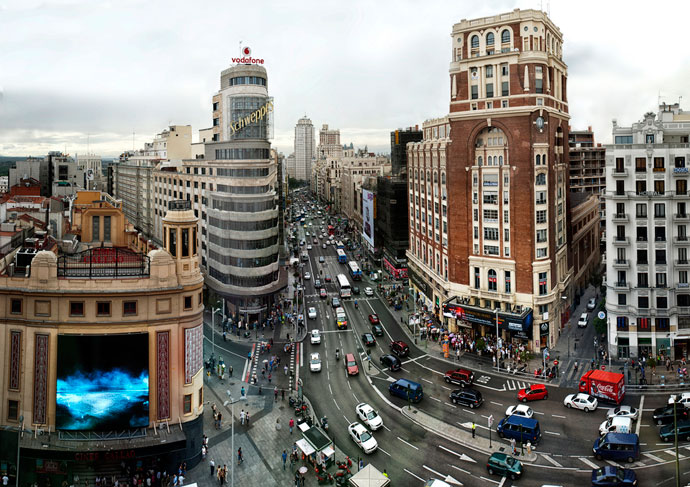Madrid Introduces Smart Parking Meters To Charge Gas Guzzlers More, Hopes To Clean Up City Air

Image via Flickr/ Jesus Solana
Madrid is trying to clean up its act — and its air. As of July 1, the Spanish capital is now home to a series of parking meters that will add a surcharge for heavily polluting cars.
The complex pricing system works like this: Drivers will enter their license plate numbers into a system that is programmed to link to the car’s make, model and year to determine the rate. A diesel-running car made in 2001 will see a 20-percent markup, while hybrids will get a 20-percent discount. Electronic cars get to park for free.
The installation of the new smart parking meters is essentially an effort by the city to clean up its air pollution, which has plagued Madrid for years. The World Health Organization reported in 2010 that Spain’s air-pollution levels were higher than they had ever been in the country’s history, increasing by more than 20 percent in the last 20 years.
Calling it the first system of its kind in the world, Madrid’s mayor, Ana Botella, hopes to send a message about the seriousness of air pollution to the city’s residents and encourage them to help reduce the problem with what’s essentially a reward system.
Vehicles with lower emissions will be subsidized,” Botella says in a press release. “And the most polluting will be punished.”
Although the smart parking meters are seemingly a noble effort to reduce air-pollution levels, some feel that there are kinks in the system that don’t take into account other factors. Basing the rate by make and year of the car, Mariano González of local environmental group Ecologists in Action told the Guardian, won’t entirely make the pricing system fair.
Maybe you bought a large vehicle this year, say a sports utility vehicle.” González says. “It could actually have higher emissions than an older, smaller car.”
The parking meters also will determine rates based on how congested the street is. Streets with more space and emptier spots will cost less to park on, and more packed roads will charge up to 20 percent more.









































